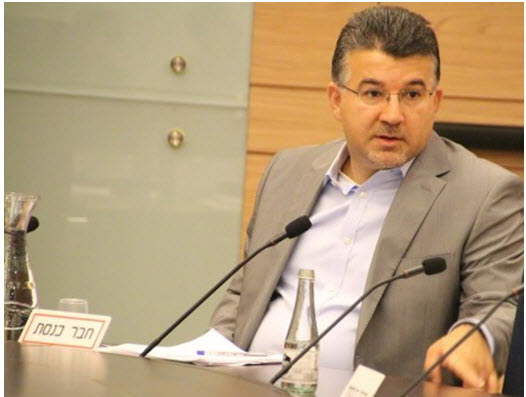Joint List MK Yousef Jabareen (Hadash) has attacked Culture and Sports Minister Miri Regev’s directive to the ministry’s Director General, Yossi Sharabim, to call for an initiative that would require raising the Israeli flag on Independence Day at all cultural and sport centers built by the state. If such a proposal is approved, it would apply to soccer stadiums and all other sports facilities as well as to theaters and cultural centers built with state funding, whether budgeted directly by the Israeli government or indirectly through state-run lotteries.
“Minister Regev continues to flaunt provocative nationalism and incitement against Arab citizens,” said MK Jabareen. “This proposal comes in the wake of her cultural loyalty bill, which is a blatant attempt to force Jewish national symbols on the Arab public.” The Hadash MK wondered: “What does this add to culture? What values does it promote? Does it promote coexistence and understanding between Jews and Arabs or does it deepen tensions and alienation?” He concluded: “In a real democracy the state does not impose national symbols on the national minority,” he continued. “Regev’s populism hurts culture, democracy and the delicate relationship between the two peoples.”
The initiative is undoubtedly intended to stir up controversy, mostly due to its broad implementation, specifically in the case of culturally sensitive locations such as the Arabic-speaking al-Midan Theater in Haifa and the Doha Stadium in Sakhnin, in northern Israel, whose population is overwhelmingly Arab-Palestinian.
The initiative is far from being the first controversial stance Regev (Likud) has made as Culture and Sports Minister. Upon entering office, she stated that she plans on carrying out dramatic changes regarding the funding received by cultural institutions. In this spirit she has, as Jabareen referred to (above), already proposed legislation commonly referred to as the “Loyalty Bill,” which would deny state funding to artists and cultural institutions whose activities are construed as “undermining Israel’s existence as a Jewish and democratic state.” If this legislation is passed, it would place such sanctions on groups or individuals who, for example, commemorate the Palestinian Nakba on Israel’s Independence Day, a measure which has been widely criticized by Jewish and Arabs artists who view it as a means of silencing criticism of the government.



